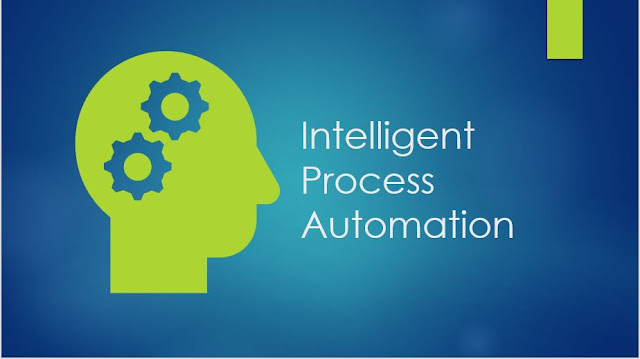Intelligent Process Automation
Times
have changed now. Efficient and fast working robots are taking the place of
many human tasks on a daily basis in industries and houses hence improving the
efficiency of the work done. All these automatic work is done with some
back-end intelligence that is called Intelligent Process Automation known as
IPA.
Intelligent Process Automation Technologies:
Intelligent
Process Automation compromises of the technologies that combine together to
integrate, handle and automate the digital processes. These technologies that
together result in IPA are Digital Process Automation knows as DPA, Artificial
Intelligence is known as AI and Robotic Process Automation is known as RPA.
Purpose of Intelligent Process Automation:
IPA
emulates exercises completed by people and, after some time, figures out how to
improve. IPA paves down the way for decision making made possible through deep
machine learning and cognitive technologies. The guarantee of IPA is
fundamentally upgraded productivity, expanded laborer execution, a decrease of
operational dangers, and improved response times and user experiences.
Intelligent Process Automation’s benefits for Businesses:
Through
intelligence process automation industries have grown their business on a
larger scale than ever before. They have achieved many advantages through
automation which includes high production, efficient use of materials, improved
product quality as well as safety, less labor and reduced factory lead times.
Hence with all these benefits more industries and small business are focusing
their business to be automated through intelligent process automation.
Intelligent Process Automation (IPA) VS Robotic Process Automation (RPA)
Emphasizing
the technologies on which Intelligent Process Automation is built upon we see
that Digital Process Automation knows as DPA has empowered us to deal with the
progression of information over your enterprise and makes it simpler to
recognize the place for development and new changes. DPA gives us the
understanding required to take an approach towards automation of the
businesses.
Whereas
Robotic Process Automation known as RPA carries speed and effectiveness to the
table. Conveying robots that copy human activities lessens exceptionally
manual, work escalated assignments, for example, re-keying information starting
with one framework then onto the next.
Similarly
Artificial Intelligence is known as AI; computer-based intelligence at that point
contributes to extraordinary knowledge and decision-making ability. This carries
another degree of deduction to the computerization it can investigate
information such that a human proved unable, perceiving designs in information
and collecting data from past choices to settle on progressively important and
smart decisions.
Future of Intelligent Process Automation:
By
the report published in Statista, in 2021, the automation industry is estimated
to generate around 238 billion U.S. dollars worldwide in which a big amount from
that will be from process automation. The industry of process automation is
expected to reach 83 billion U.S. dollars. The automation market is expected to
grow particularly in 3D printing, artificial intelligence, and drones, with
double up the amount by 2021. Automation being a vital factor in most modern
age industries whereas industrial software development is important to fields
in tech, engineering, and scientific research. Whereas the market of Industrial
software alone is expected to be worth 43 billion U.S. dollars in 2021.
(Wagner, n.d.)”
Therefore
the mesh of these technologies has the ability that is enough to power the
intelligent process automation of any business or product. Together with RPA, DPA,
AI generates solutions to world digital problems making the whole process
automated.
References
Wagner, I. (n.d.). Statista.
Retrieved from www.statista.com: https://www.statista.com/statistics/257170/global-automation-market-revenue-by-end-market/



